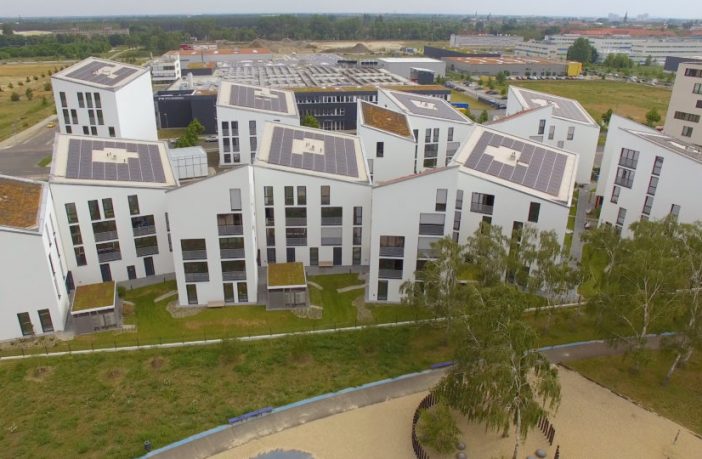- “Future Living,” the first smart-city quarter in Berlin, combines sustainable and digitally networked living in the city’s Adlershof tech-research district.
Panasonic supplied some of the key components for the project, which uses PV systems, storage tanks, and air-to-water heat pumps, among other technologies. It was completed in the spring, with 90 apartments and 10 commercial units spanning an area of more than 7.6 square kilometers.
Powered by solar energy, the air-to-water heat pumps are used for space and water heating. In order to increase performance, the heat pumps feature a cloud-based connection option for installers. This saves additional CO2 emissions, as maintenance visits can be organized more efficiently. In some cases, remote maintenance is possible.
Panasonic also continues to optimize its energy management system. “The solution was developed with leading research partners here in Germany for decentralized energy management,” said Ralf Becker, project manager of the energy group of Panasonic’s research and development team in Europe. “In simulations together with university test laboratories, we have achieved an improvement in energy use of up to 15%.”
The Japanese company is currently enjoying strong sales growth in the European energy sector. In the air-to-water heat pump segment, it has achieved double-digit growth over the past 10 years.
Last year, Panasonic said it would expand its energy-saving solutions business for residential buildings by 2025. For the project in Berlin, it is cooperating with GSW Sigmaringen, the developer of the neighbourhood.
Polarstern is also involved in the project, as it is handling the PV tenant electricity model. The aim is to give residents a price advantage of more than 15% over the local basic supply tariff
Author: Sandra Enkhardt
This article was originally published in pv magazine and is republished with permission.















